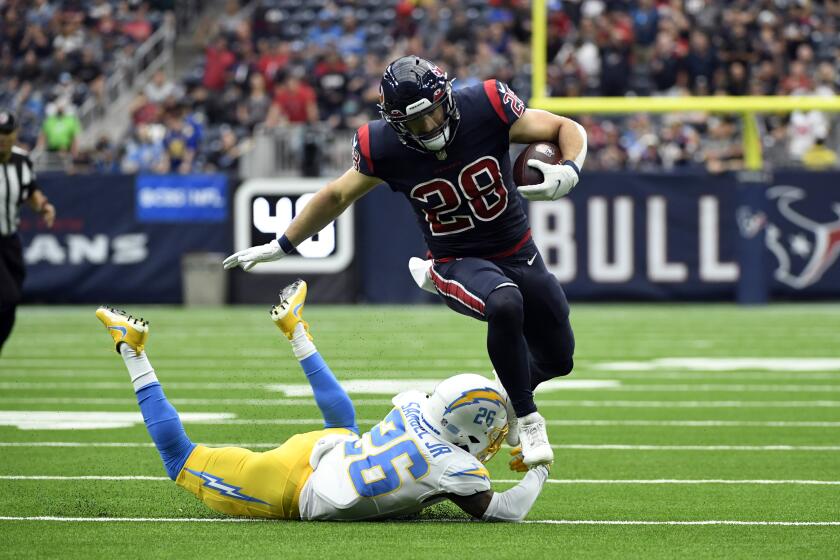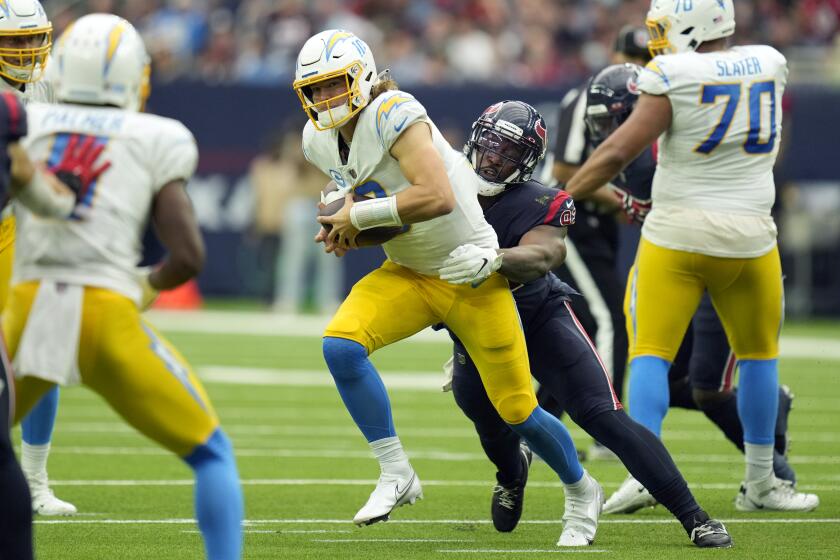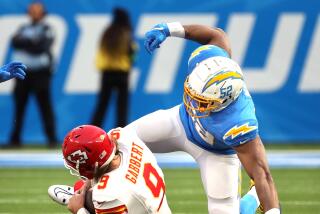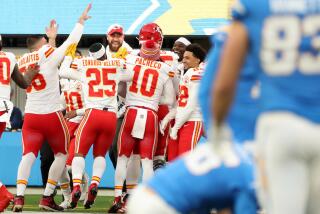Chargers’ playoff ambitions take a huge blow in stunning loss to Texans
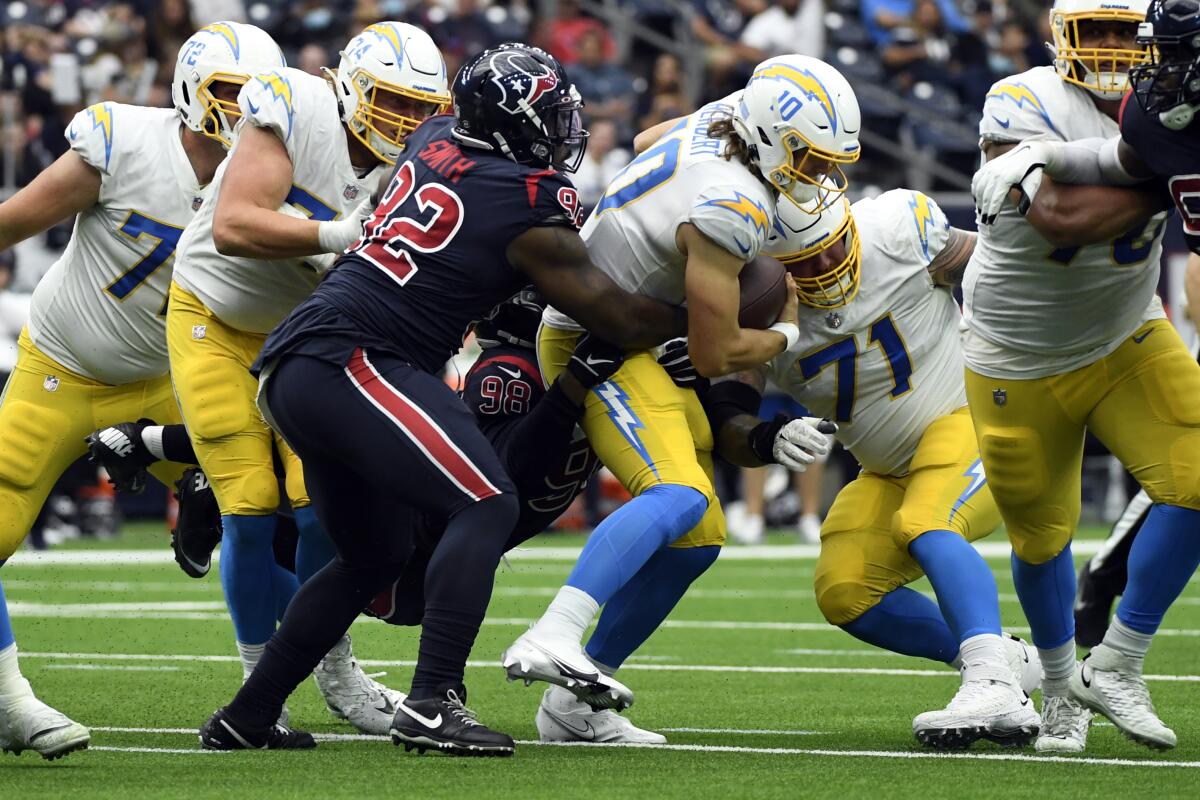
HOUSTON — On a day when other teams clinched division titles and playoff berths, the Chargers lost as nearly two-touchdown favorites to a three-win opponent ravaged by COVID-19.
Of course, the Chargers were missing 13 of their players because of the virus, but that fact offered scant consolation in the aftermath of a bitter defeat in the NFL’s Backup Bowl.
Houston’s 41-29 victory was an indictment of the entire franchise on a day when the Chargers fumbled away control of their postseason fate.
“I just didn’t coach well enough today,” Brandon Staley said. “I didn’t coach well enough, didn’t put our guys in good enough positions to be consistent in the game, and that’s why we lost.”
Said rookie Pro Bowl left tackle Rashawn Slater, “It sucks, you know, to be frank.”
The Chargers were short players, but so were the Texans and Houston still found a way to dominate the favored road team, which had its playoff prospects seriously damaged.
In losing their second in a row, the Chargers fell to 8-7. They slipped outside the AFC playoff picture after beginning the day as the No. 6 seed.
And they didn’t just lose to the previously 3-11 Texans; they were soundly beaten by them.
Houston, which entered as one of the NFL’s two worst offenses statistically, amassed 437 yards, 189 of which came on the ground. Their point total marked a season high.
Rex Burkhead rushed for a personal-best 149 yards in an NFL career that began when he was drafted in 2013. Rookie quarterback Davis Mills finished with a 130.6 rating, his second best to date.
“This is one game that’s gonna sting,” veteran cornerback Chris Harris Jr. said. “We didn’t come ready to play as a team.”
The Chargers arrived at NRG Stadium with 13 active-roster players on the COVID-19 reserve list. They included offensive starters Austin Ekeler, Corey Linsley and Mike Williams, and defensive starters Joey Bosa and Justin Jones.
Tevaughn Campbell, who had been starting at cornerback in place of the injured Asante Samuel Jr., also was on the list.
Add to that the absence of Pro Bowl safety Derwin James Jr., who was active but available only in an emergency because of a lingering hamstring problem.
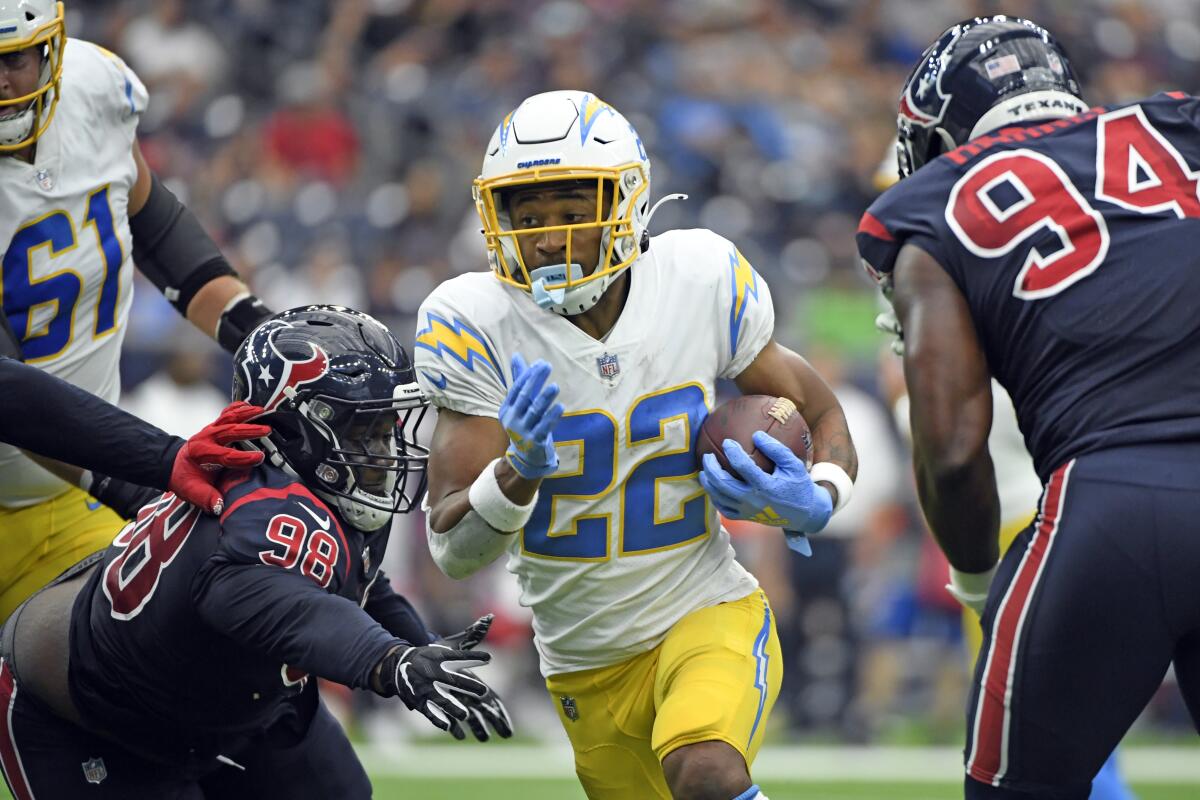
Then, shortly before kickoff, the Chargers lost starting cornerback Michael Davis, who woke up feeling ill and tested positive for COVID at the stadium.
And there’s more. Late in the first half, linebacker Drue Tranquill limped off the field with what Staley later called a lower leg injury and did not return.
“A lot of guys had opportunities to step up …” Harris said. “We didn’t really do that today. I don’t think we took full advantage of the opportunity we had.”
The shifting pieces exposed not only certain individuals but also the defense as a whole. Staley’s scheme is based on the players operating in unison, each counted on to handle his responsibilities.
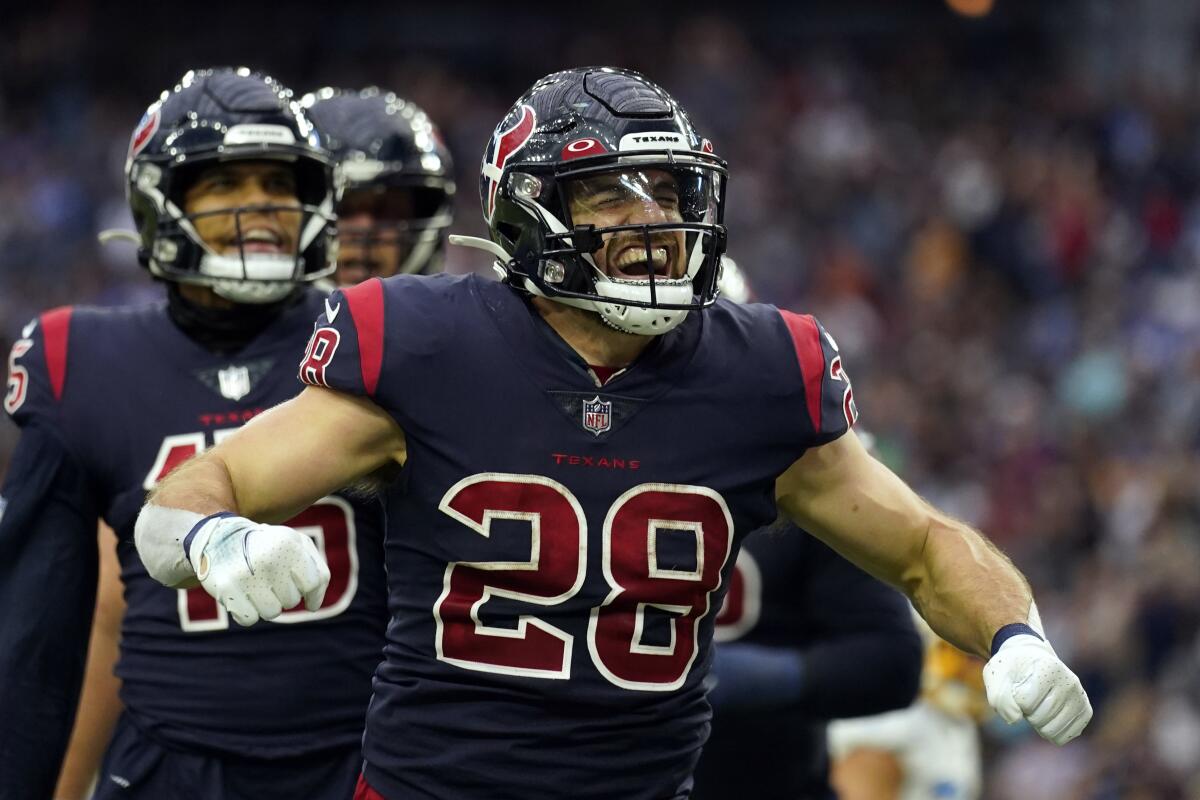
When there’s just a single breakdown, the results can be devastating. Burkhead averaging 6.8 yards in 22 carries spoke to that reality. So, too, did the fact the formerly low-octane Texans produced six plays that gained at least 23 yards.
“In this defense, everybody has to be tied together,” Harris explained. “If one person is not doing their job, they can mess up the whole defense. It’s a connected defense, and we’ve had a lot of moving parts and haven’t got that real chemistry.”
Houston was without 16 active-roster players, nine of them starters and three along the offensive line. Still, the Texans pushed around the Chargers up front and converted nine of 13 third-down situations.
The Chargers had each of the game’s three turnovers — two Justin Herbert interceptions and a Justin Jackson fumble.
They moved the ball well enough to average 7.3 yards per play and never punt. They also scored on each of their first three possessions but two of those were Dustin Hopkins field goals.
Breaking down the notable numbers behind the Chargers’ 41-29 road loss to the Houston Texans on Sunday — scoring and statistics.
“There are no excuses,” Slater said when asked about the COVID impact. “Everyone’s going through the same thing right now really. It just comes down to execution and we didn’t do that well enough.”
The Chargers led 3-0 early and 12-10 as late as the final minute of the first half. But the Texans did a better job sustaining offensive momentum, forcing Herbert to keep chasing after them on the scoreboard.
Now, with a home game against Denver and a road trip to Las Vegas remaining, the Chargers’ climb to the playoffs just grew a little steeper.
“I love the way that our guys prepared this week,” Staley said. “We didn’t play well enough today. But that doesn’t change the way I feel about them. This is the tough side of the NFL.
“It’s been a fight this entire season. It’s going to continue to be that way. We still have a lot in front of us that we can play for. We need to let this one sting, get home and rest and be ready to go take on Denver because they’re really good.”
In a season recently rocked by COVID, the Chargers left Houston feeling their worst yet.
More to Read
Go beyond the scoreboard
Get the latest on L.A.'s teams in the daily Sports Report newsletter.
You may occasionally receive promotional content from the Los Angeles Times.

